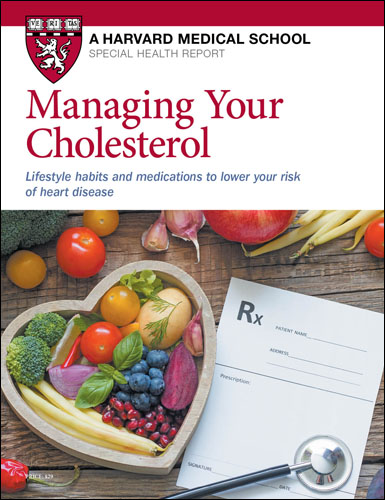Saturated fat eaten in the short term might not threaten heart health
In the journals

People who follow a low-carbohydrate/high-fat diet for weight loss often eat higher amounts of saturated fat like meat, eggs, and cheese. But won't these foods raise their risk for cardiovascular disease? A study published online Sept. 28, 2021, by The American Journal of Clinical Nutrition suggests that might not be so terrible for heart health, at least in the short term.
In the study, 164 overweight or obese people followed one of three diets. Each diet contained different proportions of carbohydrates and fat, with saturated fat constituting 21%, 14%, and 7% of total calories. (For comparison, the American Heart Association suggests that saturated fat should account for about 6% of a standard 2,000-calorie daily diet.)
After five months, researchers measured everyone's blood for cardiovascular disease risk factors like cholesterol levels and insulin resistance. The researchers found everyone had similar results.
This doesn't mean that saturated fat can't have a harmful effect on heart health, but the other components of your diet also make a difference. For instance, all three diets were high in plant foods and fiber, and low in processed foods. The diets with 21% and 14% saturated fat also included heart-healthy polyunsaturated and monounsaturated fats.
While striving for a plant-based diet is optimal, it's challenging for people who want to jump-start their weight loss with a low-carb, high-fat diet. These results provide some reassurance that markers of cardiovascular health don't spike over several months of eating more saturated fat in an otherwise heart-healthy diet. But over the long term, the adverse effects of higher saturated fat intake remain a concern.
Image: © leeavison/Getty Images
About the Author

Matthew Solan, Executive Editor, Harvard Men's Health Watch
Disclaimer:
As a service to our readers, Harvard Health Publishing provides access to our library of archived content. Please note the date of last review or update on all articles.
No content on this site, regardless of date, should ever be used as a substitute for direct medical advice from your doctor or other qualified clinician.
















